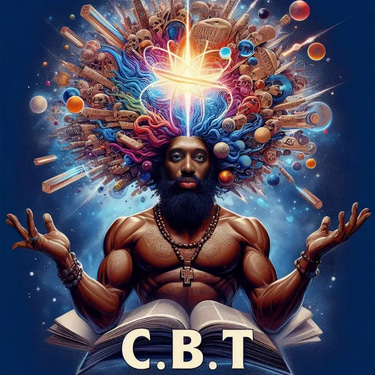Isaac Newton and the Trinity: A Clash between Reason and Church Doctrine
Isaac Newton, one of history’s greatest scientists, secretly rejected the doctrine of the Trinity, arguing that it was a later corruption of Christianity. Drawing from Scripture and historical analysis, he criticized the Nicene Creed and exposed textual alterations like 1 John 5:7. Newton’s anti-Trinitarian stance aligned with early Christian subordinationism but differed in key ways. This essay explores his theological writings, contrasts his views with Church Fathers, and reveals how he saw the Son’s generation in relation to time. Discover Newton’s hidden battle against Trinitarianism and how it shaped his understanding of God, Scripture, and reason.
James Cassel
2/1/20254 min read


Isaac Newton and His Rejection of the Trinity
Isaac Newton (1642–1727) is widely recognized as one of the greatest scientific minds in history. However, alongside his contributions to physics and mathematics, he was also deeply engaged in theological study. His anti-Trinitarian beliefs remained largely private during his lifetime, as public rejection of the Trinity in 17th-century England could have led to severe consequences, including loss of academic position or even persecution. Through his extensive study of Scripture, early Church history, and textual criticism, Newton concluded that the doctrine of the Trinity was a later corruption of original Christian teaching, introduced through political influence and philosophical speculation. His Christology aligns closely with early Subordinationism but diverges in significant ways. This essay explores Newton’s reasons for rejecting the Trinity, the key arguments he presented, and how his views compare to those of early Church Fathers.
Newton’s Rejection of the Trinity
1. Scripture as the Ultimate Authority
Newton was a firm believer in sola scriptura, arguing that doctrines must be founded on clear biblical evidence rather than theological speculation or church tradition. He believed that the doctrine of the Trinity lacked a biblical foundation and was the result of later distortions rather than apostolic teaching.
He explicitly states:
“The great apostasy did not consist in laying aside the sacraments, moral duties, or any part of the Gospel, but in the addition of human inventions to the Christian religion, which St. Paul calls ‘a departure from the faith.’”
— Yahuda Manuscripts, Ms. 15.3
Newton saw Trinitarianism as one of these human inventions, an idea foreign to the Jewish monotheism upheld by Christ and his apostles. He argued that had Jesus truly taught a triune God, the New Testament writers would have made this explicit, but instead, they consistently distinguished between God the Father as the one true God and Jesus as His subordinate Son.
For example, Newton pointed to passages like:
• John 17:3 – “And this is life eternal, that they might know thee, the only true God, and Jesus Christ, whom thou hast sent.”
• 1 Corinthians 8:6 – “But to us there is but one God, the Father, of whom are all things, and we in him; and one Lord Jesus Christ, by whom are all things, and we by him.”
Newton interpreted these verses as clear distinctions between the Father as the sole God and Jesus as a created being with a distinct role.
2. Corruption of Scripture to Support the Trinity
Newton dedicated much of his study to uncovering textual corruptions in Scripture that he believed were altered to falsely support Trinitarianism. One of the most notable examples he criticized was 1 John 5:7 (the Johannine Comma), which reads:
“For there are three that bear record in heaven, the Father, the Word, and the Holy Ghost: and these three are one.”
Newton argued that this passage was a later insertion, absent in the earliest Greek manuscripts:
“It is not found in any Greek manuscript before the 15th century, nor quoted by any of the Greek Fathers, nor the Latin ones before the time of Jerome.”
— An Historical Account of Two Notable Corruptions of Scripture (1690)
He concluded that the addition of such verses was a deliberate attempt by later theologians to fabricate scriptural evidence for the Trinity, rather than reflecting authentic apostolic teaching.
3. The Council of Nicaea and Political Influence
Newton viewed the Council of Nicaea (325 AD) as the turning point at which Christian doctrine was altered for political purposes. He believed that Constantine, rather than theological necessity, was responsible for enforcing the doctrine of the Trinity.
He wrote:
“The fall of Christianity into idolatry began in the fourth century with Constantine, who, to appease factions, imposed a doctrine not found in the Scriptures but in the metaphysical speculations of the heathen philosophers.”
— Yahuda Manuscripts, Ms. 16
Newton believed that the Nicene Creed was influenced by Platonic philosophy, not by Christ or the apostles. He was particularly critical of Athanasius, whom he saw as a chief architect of doctrinal corruption, favoring instead the views of Arius, who had argued that the Son was created and subordinate to the Father.
This aligns Newton with pre-Nicene Subordinationism, a theological position held by many early Church Fathers who distinguished the Father as the supreme God and the Son as subordinate.
Newton’s Alignment with Early Church Fathers
Newton’s rejection of the Trinity aligns closely with early Christian thought, particularly with those before the Nicene Creed. Many early theologians taught a clear hierarchy between the Father and the Son.
1. Justin Martyr (c. 100–165 AD)
Justin Martyr described the Son as a created being, emphasizing the Father’s supremacy:
“There is, and there is to be, another God and Lord subject to the Maker of all things; who is also called an Angel, because he announces to men whatsoever the Maker of all things—above whom there is no other God—wishes to announce to them.”
— Dialogue with Trypho, Chapter 56
Newton would have agreed with this subordinationist Christology, in which Christ is divine only by derivation from the Father, not by nature.
2. Origen (c. 185–253 AD)
Origen maintained that Christ was divine but subordinate to the Father:
“The Father and Son are two substances, two things as to their essence, and the Son is inferior to the Father.”
— Contra Celsum, Book 8, Ch. 15
Newton’s views align here, particularly in the idea that the Son is not co-equal with the Father. However, Origen still saw the Son as eternal, whereas Newton saw him as begotten in time.
3. Tertullian (c. 160–225 AD)
Tertullian, though coining the term “Trinity,” explicitly affirmed the subordination of the Son:
“The Father is the whole substance, while the Son is a derivation and portion of the whole.”
— Against Praxeas, Chapter 9
This again echoes Newton’s belief that the Father alone is fully God, with the Son deriving authority from Him.
How Newton’s Views Differed from Early Church Fathers
While Newton’s theology aligns with many pre-Nicene theologians, it also diverges in key ways:
1. Denial of Christ’s Pre-Existence – Unlike Origen or Justin Martyr, who believed the Son pre-existed before creation, Newton was closer to Socinianism, arguing that Christ did not exist before his human birth.
2. Skepticism of Church Tradition – While early theologians engaged in philosophical speculation, Newton rejected all later doctrinal developments, seeing them as corruptions.
3. Reliance on Biblical Criticism – Unlike the Church Fathers, Newton relied heavily on textual criticism, attempting to remove Trinitarian interpolations from the Bible.
Conclusion
Isaac Newton’s rejection of the Trinity was rooted in scriptural literalism, historical analysis, and opposition to later doctrinal corruption. He saw the Trinity as a product of political manipulation and pagan influence, rather than biblical truth. His theological views align closely with early Subordinationist Church Fathers, yet he diverged by rejecting Christ’s pre-existence and relying on textual criticism. Though he never published these views publicly, his writings reveal a deep commitment to a rational, historical Christianity, distinct from Nicene orthodoxy.
